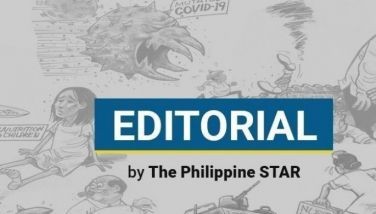Soft power under Marcos

Globalization has changed the world. With borderless trade, open immigration and multilateral alliances as the new norm, the definition of power has shifted. Power is now defined as the ability to control people and events not through coercion but by persuasion. It is having the ability to influence decisions on a global scale. These abilities are known as “soft power” and it is the world’s new benchmark of supremacy. Citizens belonging to nations with soft power typically enjoy higher confidence, morale and national pride.
The Marcoses know very well that perception is as good as reality. Back in the 70’s, Ferdinand Sr. and Imelda took pains to strengthen our pillars of soft power. These pillars include: Global familiarity with a country’s culture and heritage; its positive reputation; its diplomatic alliances and global connections; its openness for business; its technology adoption; the strength of its governance; the strength of its diplomatic mission abroad and the level of education of its people.
It will be recalled that in the 70’s, the Philippines enjoyed an international reputation far more superior than its ASEAN neighbors. This was true in the areas of culture, the economy and technological advancement. As a result, the Philippines’ voice carried gravitas in international fora and geopolitics.
Unfortunately, numerous Marcos-related projects were either abandoned, oppressed and/or minimized by the governments that followed it due to political considerations and other spending priorities. Our global gravitas has not been the same since.
In two weeks, president-elect Ferdinand Marcos Jr. will be taking the reins of government. He has the opportunity to revive the projects that brought glorious soft power to the country. This time, however, he has the chance to do it right – without corruption and with an eye towards sustainability.
How do we restore the global gravitas of the Philippines? We need not look further than Ferdinand and Imelda’s playbook.
Whether substantiated or not, the Philippines was perceived as among the more progressive economies in the region, what with trailblazing infrastructure projects such as the north and south expressways, the Light Rail Transit 1 and the San Juanico bridge, among others. In agriculture, the “Green Revolution” caused us to be net exporters of rice, sugar and coconut products and this made the Philippines a leading light among developing nations. Although we now know that the Green Revolution was heavily subsidized by debts and its monopolistic structure proved disastrous, that is beside the point in this discussion. Again, power is all about perception.
The Marcoses had a penchant for “halo projects” or projects that underlined the country’s progress in technology and development. It was during the 70s that medical institutions were built, offering cutting edge technologies in cardiology, pulmonology, renal medicine and pediatrics. In the realm of the arts, the Marcoses funded programs that developed and exported Philippine culture abroad. Even today, the Madrigal Singers, Ballet Philippines and the Bayanihan Dancers bring us pride. The Cultural Center, Folk Arts Theater and Film Center punctuated government’s dedication to the arts. Sports development and the study of humanities were given government support through the establishment of the University of Life. Again, sustainability of these projects are beside the point.
In education, emphasis was made on mastering the English language. Back then, our youth were among the most articulate and intelligent in the region.
The Marcoses took the global posture of the Philippines to new heights by hosting high profile international events. In 1976, the Philippines hosted the IMF-World Bank Global Meeting. In 1979, the country hosted the United Nations Conference on Trade & Development (UNCTAD). The Marcoses played the role of “America’s closest ally” and “ASEAN’s founding member” to the hilt as it asserted the Philippines’ voice in geopolitical affairs.
The Marcoses cared about the livability of our cities and through the Metro Manila Commission, made our capital one of the most beautiful cities in the world. At various instances until the mid-70’s, Manila was named the most beautiful Asian city by Paris Match, Conde Nast and Der Speigel. In 1976, the Metro Manila Aide system (an army of street sweepers) was established. Subsequently, Manila was recognized as the cleanest Asian city. Back then, our boulevards were green and grand, like Singapore’s avenues today. It is a stark contrast from the grime and decay of our cities these days, made worse by pestering tarpaulin signs at every turn.
Brand Finance is the world’s leading brand valuation company. Based in the United Kingdom, Brand Finance assesses and ranks the soft power of nations.
How does the Philippines measure up in soft power?
Over the past decade, the Philippines posted two highs in the global soft power index. In 2016, when we were deemed the 29th most powerful country in the world, and in 2019 when we ranked 25th out of 120 nations. Within ASEAN-6, we were the second most powerful, trailing Indonesia.
Things took a turn for the worse in 2020. From our lofty perch, the Philippines plunged to 42nd place due to the eroding quality of governance, corruption, poor human rights record, a weaker rule of law and weaker international relations.
Our global soft power rank further eroded in 2021, falling to 53rd place. This was due to government’s poor anti-COVID response and corruption. We sank even lower to 60th place in this year’s rankings. From second most powerful in ASEAN-6, we’ve fallen to become the least powerful.
As a Filipino, it is demoralizing to see the country lose its global gravitas. It is even more heartbreaking to see our people walk with their heads down and tail between their legs when abroad.
With a Marcos at the helm, I hope that our soft power may be restored again. This time, however, let it be done according to the tenets of good governance and responsible financial stewardship.
* * *
Email: [email protected]. Follow him on Twitter @aj_masigan
- Latest
- Trending



























